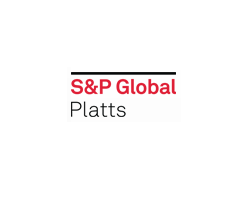Selloff Leaves Premium Coking Coal Well Below Spot Trends With HCC, PCI Prices

By Hector Forster and James Leech
March 24, 2018 - The latest drop in spot premium coking coal prices has left the gap with lower-priced second-tier hard coking coal (HCC) under scrutiny.
TSI Premium HCC fell to $208.30/mt FOB Australia Friday, losing $8.50/mt in a week, on top of $8.80/mt pared the previous week. TSI HCC FOB Australia has been steady at $203/mt FOB, with limited dealflow for spot Rangal coals since early March.
A lack of spot supply as miners scramble to meet contract demand has supported pricing for second-tier coals. Shipments fell at Gladstone, a key port for exports of low-ash Rangal coal measures' brands, on rain disruption and as rail service worsened.
Market trends have left second-tier HCC prices above expected value on 15- and 30-day trade basis, with mid-tier pulverized coal injection (PCI) pricing also supported, according to S&P Global Platts analysis. Premium HCC pricing is looking weaker than would be expected, based on price trends with the other coals.
PCI has been finding demand, with some mid-tier grades with coking properties said to be blended into making blast furnace coke, rather than simply added to blast furnaces to increase energy to reduce coke consumption.
Based on spot trade price data averaged over 15 and 30 days, TSI Premium HCC is pricing Friday around 14% and 17% below expected trading value against TSI's second-tier HCC and Platts mid-tier PCI.
When looking at 60-days of trade data, TSI Premium HCC is 17.5% below the two grades, with 60 days providing more context on met coal pricing against recent market performance.
Platts TSI Met Coal RSI Tracker data generates daily indexes indicating relative price strength and weakness for each coal type compared with peers over the past 15, 30 and 60 trading days.
On Friday, second-tier TSI HCC prices trended 5.7% above expected value on 30 day trade history, while mid-tier PCI was 5.2% above expected value, using 30-day trade data with the two coking coal grades.
The severe price downside for premium HCC may help support views that more volatility may be expected to better balance the market, or perhaps the narrow gap with second-tier HCC may persist to some degree.
China's domestic-to-import coal arbitrage window remains swinging wildly in favor of import coals this week since the arbitrage reopened since January 17, using Platts data.
The Platts PLV imports to domestic CFR China differential was almost $20/mt in favor of imported PLV on March 21, up from just below $13/mt in favor on March 14, and a brief nudge in favor of domestic coal a week earlier, to $1.15/mt on March 7, based on the weekly assessment.
Gladstone coal shipments in February fell by 9% year on year and were only 3% higher than the nine-month low set in January.
The Blackwater rail line, which connects mines in the region to Gladstone, was impacted by flooding following storms in Queensland in the second half of February. Now, regional rail operator Aurizon is reducing allocations and creating vessel queues, as it seeks to contest a regulatory limit on charges to help fund its operation and maintenance.
Demand for low ash coal is strong, but traders are eyeing if China's steel utilization rates and domestic coke market can support demand for second-tier HCC import to sustain a tight pricing relativity with premium HCC.
So far this year, the TSI HCC FOB Australia index has traded at an average 17.8% discount to TSI Premium HCC FOB Australia, while on Friday the gap was just 2.54%.
CoalZoom.com - Your Foremost Source for Coal News

